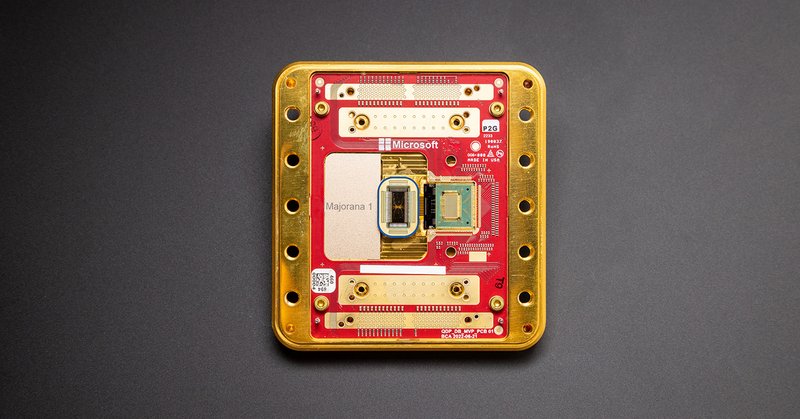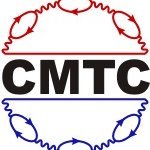
Henry Legg
@PhysicsHenry
Followers
3K
Following
5K
Media
1K
Statuses
2K
Lecturer (~asst prof) investigating quantum physics @univofstandrews. My opinions belong to 28 highly trained monkeys and are not those of my employer.
St Andrews
Joined December 2013
I had made Microsoft Quantum aware of issues before publication of their latest Nature paper (which uses the TGP to tune up their devices). Now I have made all issues public. In short: The topological gap protocol and all claims based on it are flawed. https://t.co/fOX1hhOcCo
5
28
159
Microsoft's Majorana team are now cosplaying as "a small startup sitting inside a huge tech company" Just your typical shoestring outfit: 100+ people and $1 billion+ burnt As if we needed any more evidence that this team is now fully detached from reality...
1
0
13
The German press has been largely very good dealing with @MSFTQuantum’s nonsense. However, a little reminder: 😡Schottland ist nicht England!😡 🏴🏴🏴🏴🏴🏴🏴🏴🏴🏴🏴🏴
1
0
13
“If it’s possible to be less-than-underwhelmed, that would describe Legg, who gave a talk the day before Nayak’s” 🤷🏻♂️ What can I say? Microsoft’s results impressed me — with a negative sign.
1
0
5
“The data was incredibly unconvincing. It is as if Microsoft Quantum was attempting a simultaneous Rorschach test on hundreds of people,” says physicist Henry Legg of the University of St. Andrews in Scotland https://t.co/4beVc6pNe9
sciencenews.org
Majorana qubits could be error resistant. But after a contentious talk at the Global Physics Summit, scientists aren’t convinced Microsoft has them.
2
3
25
2025 Anaheim Global Physics Summit was overwhelmed by nonsensical noise presented by MSFT as evidence of a topological qubit after claiming to the world they had built one. There you go Sankar — I fixed your tweet for you.
2025 Anaheim Global Physics Summit was overwhelmed by nonsensical noise around MSFT quantum claims with no nuanced discussion on how almost-impossibly difficult it is to build a quantum computer in any platform, let alone the Majorana platform, fault-tolerance is ever-elusive
1
0
11
“The gap protocol is flawed,” said Henry Legg of the University of St Andrews. “The foundations to build a topological qubit aren’t there, and anyone claiming they have built one today is selling a dangerous fairy tale.” https://t.co/MrITaM5Ey4
physics.aps.org
Microsoft’s announcement of achieving a milestone in a potentially transformative approach to quantum computing is met with skepticism by researchers attending the APS Global Summit.
0
7
41
Also note just how much of phase space is supposedly "topological" in these simulations due to that diluted definition. By their original definition of topology (in Pikulin et al.) everything would be a false positive.
0
0
2
In their PRB Microsoft claimed no false positives in their simulations. Now they claim "it’s one in 700" — a meaningless number because of how they diluted the definition of topology for the original claim. Still, silly games can be fun: here’s another false positive.
1
2
16
On a personal note: It has been a very long few weeks since the Nature paper and my decision to write these comments. I am incredibly grateful for all the support of friends and colleagues. But I am now looking forward to a few days of tuning out and some normalcy.
0
0
5
We are told that 13 devices of this generation pass the topological gap protocol, but all the measurements of “Majorana 1” (appear) to be from a single device. What happened with those other devices? They were apparently functioning well enough for the TGP…
1
0
0
As for the infamous X “measurement”: Why 0.2 ms to 0.5 ms? We saw longer time traces, is this really the best “fit” range?
1
0
1
These are supposedly the zero bias peaks corresponding to Majorana zero modes, but note that the y-axis on several of these plots does not go to zero which gives the (false) impression the background vanishes between peaks. Why were these y-axes adjusted?
1
1
1
Thoughts on the plane to Scotland about *that* talk: Main take home: As always, we are looking at a highly curated data set and even that is not at all convincing. Take this supposedly h/2e data: why does it start at 28.5 mT and end at 34 mT? What happens outside these ranges?
1
0
12
My summary slide yesterday: 1) We do not have a reliable way to detect Majoranas 2) The conductance data shows that there is no clear superconducting gap in these devices There is no reason to believe the noise presented today has anything to do with a topological qubit.
Microsoft want you to believe this data shows the X measurement of a topological qubit. As an expert in this field here is my scientific take on what I see in this data: 💩💩💩💩💩
0
0
5
The magnetic field ranges for the topological gap protocol of the two wires in Microsoft’s “tetron” are different. These wires are on the same chip! We know changing magnetic field range can change the TGP outcome. Explain please @MSFTQuantum
3
0
16
Microsoft want you to believe this data shows the X measurement of a topological qubit. As an expert in this field here is my scientific take on what I see in this data: 💩💩💩💩💩
7
8
85
Thank you to everyone that came to my talk today and all the support over the last few weeks. Today was an important day for protecting the scientific record #apsmarch
1
0
63
Microsoft Quantum just admitted several mistakes in their topological gap protocol. Most importantly, that their self-declared ‘main result’ in PRB 107, 245423—that they passed arXiv:2103.12217—is not true. I expect them to promptly inform @APSphysics of their retraction.
6
25
163


